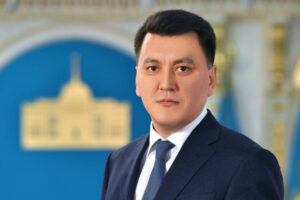ASTANA – Kazakhstan will continue implementing the political modernization program this year, State Counselor Erlan Karin wrote on his Telegram channel on Jan. 3, reporting on fundamental changes coming in 2023.

Photo credit: Akorda
The Constitutional Court, which just started its operation on Jan. 1, would ensure strict and unswerving observance of the norms of the Constitution. The new constitutional status of the Commissioner for Human Rights and the Prosecutor General’s Office and a new position of the Commissioner would support people from socially vulnerable groups.
Karin said that the country’s electoral legislation and system have changed from the beginning of the year.
“Kazakhstan launched a process of forming single-mandate constituencies and relevant election commissions. Members of territorial election commissions will now exercise their powers on a permanent professional basis, which will improve the quality of electoral procedures,” Karin said.
The country will hold extraordinary elections of deputies to the Mazhilis (the lower house of the Parliament) and maslikhats (local representative bodies) of all levels in the year’s first half. The upcoming electoral campaign will be held according to new rules and norms.
Nearly 350 akims (governors) of villages, communities, and rural districts will be elected directly this year.
On Jan. 14, deputy elections to the Kazakh Senate (the upper house of the Parliament) with 66 candidates will take place.
Chairperson of Senate Maulen Ashimbayev expects the upcoming elections will bring well-qualified lawyers to the Senate, according to the Kazinform news agency.
“We have many challenging laws… The most recent bankruptcy law is the most complicated. We’ll see how it turns out. Still, I believe there will be many questions, and we will learn what the flaws are. As a result, strong lawyers are required to comprehend such legislation,” Ashimbayev said.
